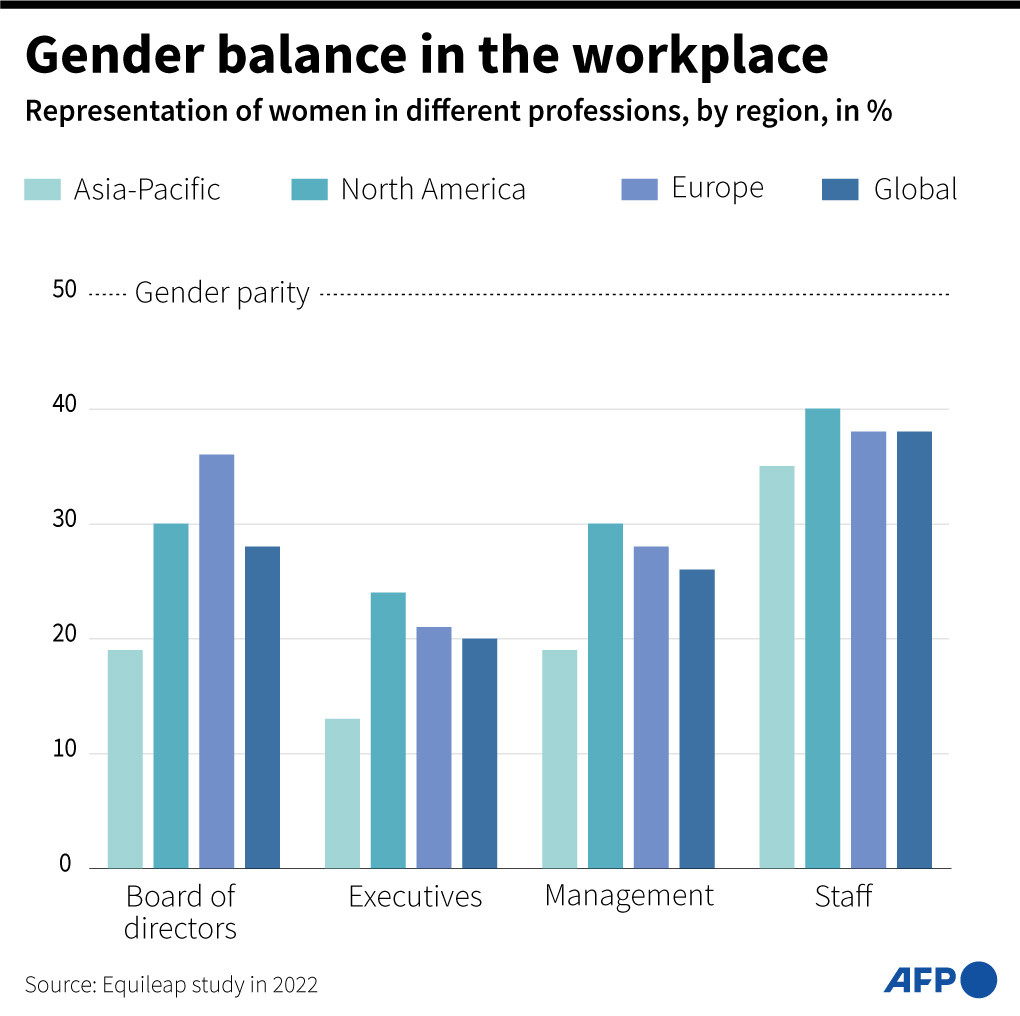Popular Reads
Top Results
Can't find what you're looking for?
View all search resultsPopular Reads
Top Results
Can't find what you're looking for?
View all search resultsGender gap at work far worse than expected: United Nations
Women earn just 51 US cents for each dollar men earn: ILO.
Change text size
Gift Premium Articles
to Anyone
W
omen had a harder time accessing work globally than previously thought, while the gender gap in working conditions and pay had barely budged in two decades, the United Nations said on Monday.
The UN’s International Labor Organization (ILO) said it had developed a new indicator that did a better job than official unemployment rates at capturing all people without employment that were interested in finding work.
“It paints a much bleaker picture of the situation of women in the world of work than the more commonly used unemployment rate,” the ILO said in a statement two days before International Women’s Day, as quoted by AFP.
“The new data shows that women still have a much harder time finding a job than men.”
According to new ILO data, 15 percent of working-age women globally would like to work but do not have a job, compared to 10.5 percent of men.
“This gender gap has remained almost unchanged for two decades,” it said.
By contrast, official unemployment rates for women and men are very similar.
This, ILO said, was because the criteria used to determine if someone should officially be considered unemployed tended to disproportionately exclude women.
It pointed out that personal and family responsibilities, including unpaid care work, disproportionately affected women.
Such activities, it said, not only often prevented women from working, but also from actively searching for employment or being available to work on short notice, which were criteria for being considered unemployed.
The ILO found that the jobs gap was particularly severe in low-income countries, where nearly a quarter of women were unable to find a job.
For men, the corresponding rate was below 17 percent, the ILO said.
Access to employment is not the only problem.
The ILO highlighted that women tended to be overrepresented in certain types of vulnerable jobs, including helping out in relatives’ businesses rather than being in own-account work.
“This vulnerability, together with lower employment rates, takes a toll on women’s earnings,” the ILO said. “Globally, for each dollar of labor income men earn, women earned only 51 [US] cents.”
The pay gap meanwhile varies widely between regions, with the figure dropping to 33 cents in low-income countries, but reaching 58 cents in high-income countries.
“This striking disparity in earnings is driven by both women’s lower employment level, as well as their lower average earnings when they are employed,” the ILO said.
Gender parity in Spain
Meanwhile in Spain, Prime Minister Pedro Sanchez on Saturday announced a gender equality law that would require more equal representation of women and men in politics, business and other spheres of public life, Reuters reported.
The Equal Representation Law will apply gender parity measures to electoral lists, the boards of directors of big companies and governing boards of professional associations.
Sanchez made the announcement during a socialist party rally ahead of International Women’s Day on March 8. It will be approved during Tuesday’s cabinet meeting before going for debate in parliament.
He said the government was “not only taking a step in favor of feminism, but in favor of Spanish society as a whole”.
It is the latest in a series of equality measures announced by the leftist coalition government. In December, lawmakers passed a transgender rights bill, as well as a pioneering law covering sexual and reproductive health that, in a first for a European country, offered state-funded paid leave for women who suffer from painful periods.
“If they represent half of society, half of the political and economic power has to be women’s,” Sanchez said on Saturday.
The Equal Representation Law will require women to make up 40 percent of the management of any listed company with more than 250 workers and an annual turnover of 50 million euros (US$53 million).
In politics, the law will require parties to offer equal numbers of male and female candidates during elections, with the aim of increasing gender parity in parliament. At the moment women make up 44 percent of Congress and 39 percent of the Senate.
It will also require professional associations to have at least 40 percent women on their boards, as well as juries for any awards financed with public money.










